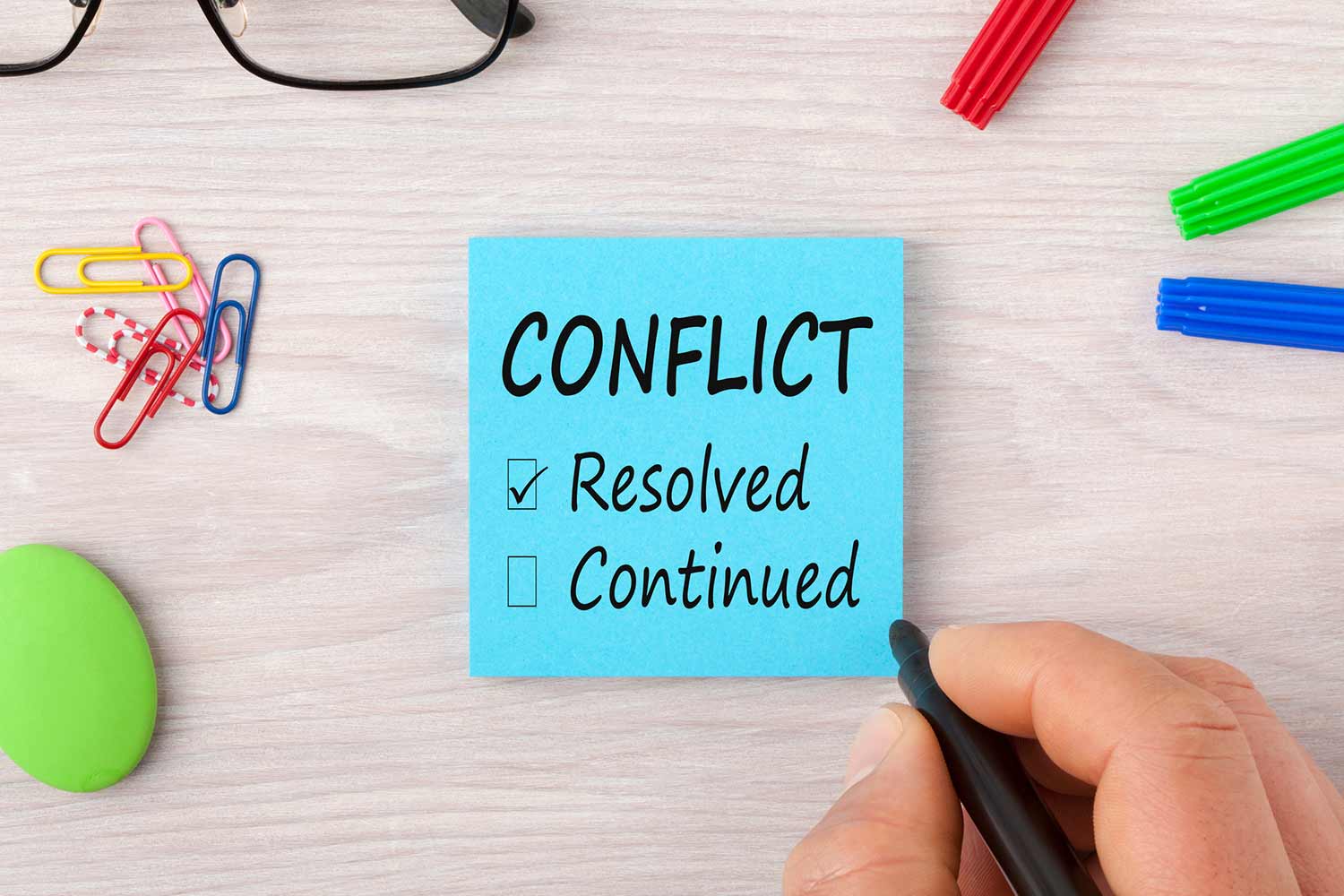
By:
- Judy Piercey
Published Date
By:
- Judy Piercey
Share This:

Image by iStock.com/ogichobanov
Faculty Resolve Workplace Conflicts Through Mediation
Why would a university pursue mediation as a way to improve the faculty climate and deal with conflict in academia? Considering the cost of unresolved and poorly managed conflict in organizations—lost time and productivity, decreased workplace satisfaction, damaged relationships and higher turnover—it’s easy to see why UC San Diego’s Office for Equity, Diversity and Inclusion launched in 2017 a Faculty Peer Mediation Program through its Center for Faculty Diversity and Inclusion.
The shared governance model unique to universities, which encourages faculty participation in the governance of the organization through the Academic Senate, makes mediation a powerful alternative form of conflict resolution.
“Faculty are empowered to provide leadership within the university,” said Executive Vice Chancellor Elizabeth H. Simmons. “So it makes sense that they are also empowered to help resolve interpersonal disagreements with collegiality and respect.”
Mediation is a form of conflict resolution in which a trained, neutral mediator facilitates a discussion between parties who have a disagreement and assists them in identifying a mutually acceptable resolution.
“The peer mediation program is designed to give faculty the tools to resolve conflict in healthy ways,” said Vice Chancellor for Equity, Diversity and Inclusion Becky Petitt. “The process is voluntary and only the parties in a mediation can determine the outcome. There is considerable agency in how they choose to move forward, which I think works for faculty. The mediator is merely a facilitator.And it’s amazing how effective the process can be in helping people better understand each other and figure out how to work together.”
Mediators are volunteer faculty members who have completed 40 hours of rigorous mediation skills training provided by the National Conflict Resolution Center, and passed a series of performance-based simulations. Mediation is informal, confidential and strictly voluntary. Faculty mediators do not take sides or decide how a disagreement should be resolved.
Robert “Skip” Pomeroy, an associate teaching professor in the Department of Chemistry and Biochemistry, was trained as a faculty mediator with the first cohort in 2017. He notes that in a hierarchical structure like the tenure system, one concern is “expressing yourself to peers that will decide your tenure at a later date. In principle, we want all views to be heard, but thedynamics of the stratified systemare not always open to treating all views equally.” Pomeroy added, “I believe that better communication earlier in the resolution of conflicts will lead to better outcomes with less drama. Active listening and learning to avoid language that can unintentionally inflame the situation is important.”
Thirty faculty members to date have been trained, including Ana Navarro, professor of Family Medicine and Public Health. “In a fast-paced vibrant environment like UC San Diego, interpersonal tensions are inevitable and, in some cases, can interfere with communication, a climate of respect and the goals and values of UC San Diego,” she said. “To me, the tools provided in the training were like a key to a complicated puzzle. The process consists of a two-hour meeting with the necessary parties involved. The productive transformation in perspectives that can occur within this framework is remarkable.
“As mediators, our role is to prepare a carefully structured (yet flexible) agenda that guides the session and facilitates dialogue,” Navarro continued. “Most importantly, the mediation parties are first and foremost responsible for bringing up the issues and identifying steps to move forward.”
For some of the faculty mediators, the intense training offered personal as well as professional benefits. Erica Heinzman, who teaches in UC San Diego’s Secondary Education credential program, said “I learned valuable tools for actively listening and gained strategies for identifying the root cause(s) and possible resolutions. I appreciated the premise of the training that the resolution lies within the parties and the mediator facilitates the parties forging a mutually agreeable one. I also recognized the training would help me in professional and personal relationships.”
Any UC San Diego faculty member can request mediation services by calling the Center for Faculty Diversity and Inclusion at (858) 246-1923. To maintain confidentiality, the center does not accept requests via email. The sessions are held on campus in a neutral location. To learn more about the Faculty Peer Mediation Program, visit the Faculty Peer Mediation Program website.
Share This:
You May Also Like
Stay in the Know
Keep up with all the latest from UC San Diego. Subscribe to the newsletter today.


